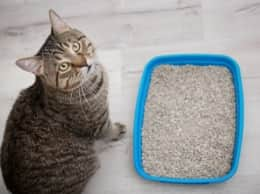Cell culture
About three-dimensional cell culture technology
Technology resulting from our industry–academia collaborative research
In collaborative research with the Graduate School of Pharmaceutical Sciences, Osaka University, we have demonstrated that three-dimensional (3D)
spheroids can be readily formed by adding clay particles to a standard culture medium, even when using low-cost adherent plates.
Furthermore, this technology has proven effective in a variety of cancer cell lines.
Given its promising applications in the rapidly advancing fields of cancer research and drug discovery, this technology has been developed
and commercialized as the reagent “Kuni-Grow+”.
Culture example: HT29 cell (Origin: Adenocarcinoma of the Human Colon)
cultured in an adherent plate.
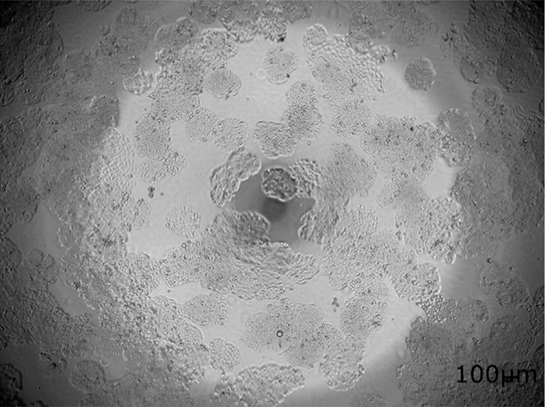
Control (planar culture)
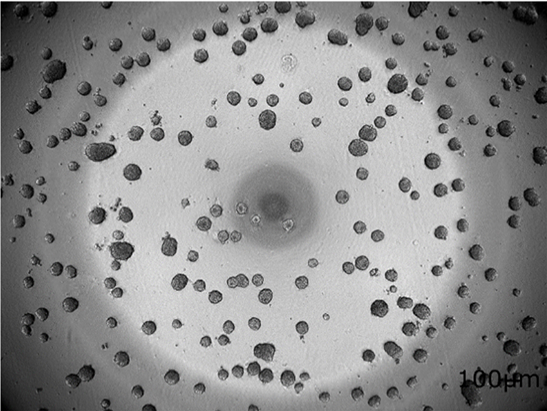
Kuni-Grow+ (spheroid formation)
Mechanism of spheroid formation
Once the reagent is added to the medium, sheet-like clay particles adsorb serum proteins and growth factors from the medium, forming complexes.
These complexes adhere to the cell surface and act as small scaffolds. Then, cells aggregate around the scaffolds and then proliferate to
spontaneously form spheroids.
Overview of intended use
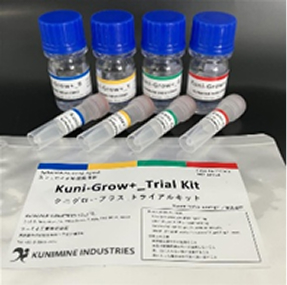
“Kuni-Grow+” can be used as a medium additive for the simple and
convenient formation of 3D cell cultures.
No dedicated 3D culture media or specialized plates are required.
By simply adding the reagent to a conventional medium for 2D culture,
spheroid formation is facilitated. As of March 2025, the product has been studied and
shown to be effective in 24 cell lines from 8 categories.
*This project was conducted with the support of the Basis for Supporting
Innovative Drug Discovery and Life Science Research (BINDS) No. JP23ama121054 by AMED.
*This project has received the “Minister of Education, Culture, Sports,
Science and Technology Award” at the 7th Japan Open Innovation Prize.
How to Use
- Add “Kuni-Grow+” to your culture medium at a ratio of 98 (medium):2 (reagent) and mix well.
- Filter through a syringe filter (5 μm pore size) to remove aggregates.
Note: It is not mandatory procedure but is recommended. - Add an equal volume of cell suspension (prepared in advance as a single-cell suspension of the target cell line) to the culture plate
after dispensing, then, start the culture. - Replace the culture medium in the same manner as for standard planar culture.
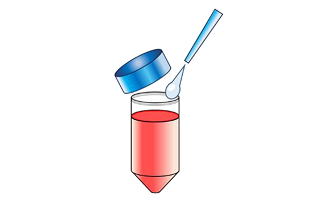
Kuni-Grow+
To the growth medium, add the reagent in
the ratio of 98:2 and mix well.
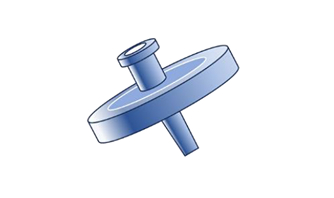
Filter through a syringe filter
(recommended).
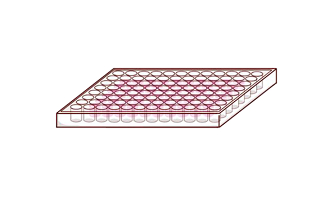
Dispense the medium and cell suspension
in the ratio of 1:1, and start culturing.
Adjust final concentration to 1%
Product lineup
| Product name | Form |
|---|---|
| Kuni-Grow+ | Dispersion solution |






